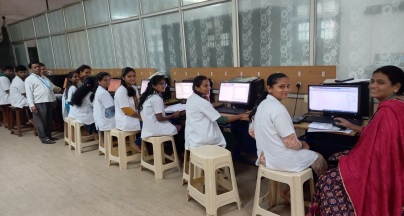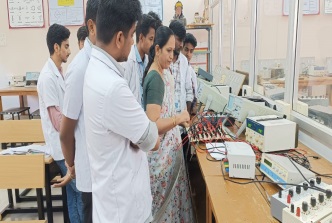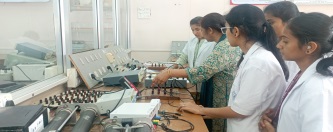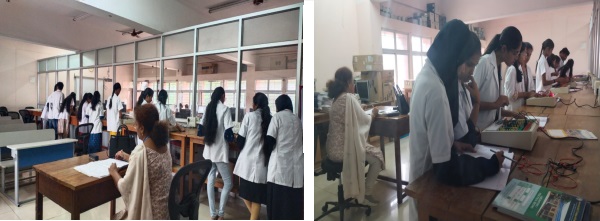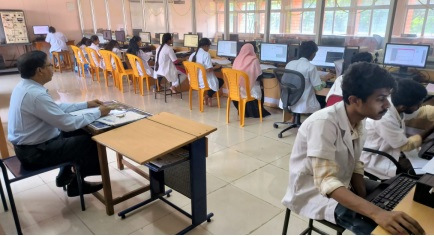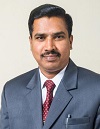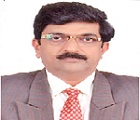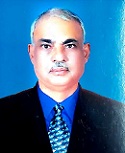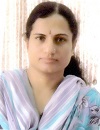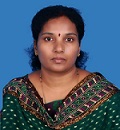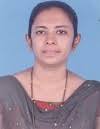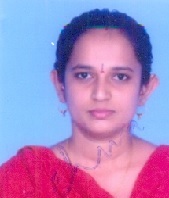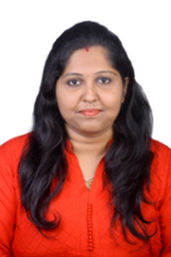-
Online Fees Payment
- Pay Now
About the Department
The department of Instrumentation Technology was started in the year 1985. The Department was offering BE degree course in Instrumentation Technology till 2004-05. The name of the Department was changed to Electronics & Instrumentation during the year 2005-2006 with the approval of AICTE. Since then department is offering 4 years BE degree course in Electronics & Instrumentation Engineering. The department has been imparting quality engineering education to student's community. The department has well qualified and experienced faculty. In the year 2014-15 the Department got the recognition as ‘Research Centre’ from VTU, Belagavi, to offer M.Sc (Engg) by Research and Ph.D. Programs.
The academic performance of the students is found to be good. During the last 4 years the final year result is more than 98%, with more than 75% students passing with FCD. The Department has bagged 15 ranks including three Gold Medals in the University examinations at VTU level. The students of the department have been placed in reputed organizations like TCS, Infosys, HCL, Wipro, Tech Mahindra, SLK Software, CTS, L&T Technology Services, Schneider Electricals, IBM India Pvt. Ltd. and several public & private sector undertakings
DEPARTMENT VISION
To achieve excellence by imparting quality technical education in a progressive teaching learning environment to make the program a top choice for undergraduate and research studies.
DEPARTMENT MISSION
- To prepare professionally skilled and technically competent Electronics & Instrumentation Engineers to meet the needs of modern industry and emerging technology.
- To inculcate the spirit of entrepreneurship, passion to work, professional attitude, innovation, and human values to create knowledge centric society.
PROGRAM EDUCATIONAL OBJECTIVES (PEO)
1.The Program aims to inculcate professional skills to produce globally competent Electronics & Instrumentation Engineers.
2.The graduates of Electronics & Instrumentation engineering will be able to analyze, design, develop and realize solutions to complex engineering problems of their specialization.
3.The graduates continue to develop professionally through life-long learning, higher education, and other creative pursuits in advanced technology, with professional ethics,
social and human values.
Program Outcomes (PO)
The Program Outcomes define the knowledge and skills that will be mastered by our graduates. The graduates will have the ability to
- Engineering knowledge: Apply the knowledge of mathematics, science, engineering fundamentals, and an engineering specialization to the solution of complex engineering problems.
- Problem analysis: Identify, formulate, review research literature, and analyze complex engineering problems reaching substantiated conclusions using first principles of mathematics, natural sciences, and engineering sciences.
- Design/development of solutions: Design solutions for complex engineering problems and design system components or processes that meet the specified needs with appropriate consideration for the public health and safety, and the cultural, societal, and environmental considerations.
- Conduct investigations of complex problems: Use research-based knowledge and research methods including design of experiments, analysis and interpretation of data, and synthesis of the information to provide valid conclusions.
- Modern tool usage: Create, select, and apply appropriate techniques, resources, and modern engineering and IT tools including prediction and modeling to complex engineering activities with an understanding of the limitations.
- The engineer and society: Apply reasoning informed by the contextual knowledge to assess societal, health, safety, legal and cultural issues and the consequent responsibilities relevant to the professional engineering practice.
- Environment and sustainability: Understand the impact of the professional engineering solutions in societal and environmental contexts, and demonstrate the knowledge of, and need for sustainable development.
- Ethics: Apply ethical principles and commit to professional ethics and responsibilities and norms of the engineering practice.
- Individual and team work: Function effectively as an individual, and as a member or leader in diverse teams, and in multidisciplinary settings.
- Communication: Communicate effectively on complex engineering activities with the engineering community and with society at large, such as, being able to comprehend and write effective reports and design documentation, make effective presentations, and give and receive clear instructions.
- Project management and finance: Demonstrate knowledge and understanding of the engineering and management principles and apply these to one’s own work, as a member and leader in a team, to manage projects and in multidisciplinary environments.
- Life-long learning: Recognize the need for, and have the preparation and ability to engage in independent and life-long learning in the broadest context of technological change.
Program Specific Outcomes (PSOs)
- PSO1: Demonstrate the use of electronic circuits design, communication technology and programming in development of embedded systems for industrial and real-time applications.
- PSO2: Adapt the basic concepts of instrumentation and measurement, signal conditioning and controlling for industrial automation.
Cources Offered:
B.E. in Electronics and Instrumentation engineering
Ph.D Programme
Department Library
Department has forum library in which the outgoing students of 8th Semester will donate a book to the department. At present, it has about 450 books.
